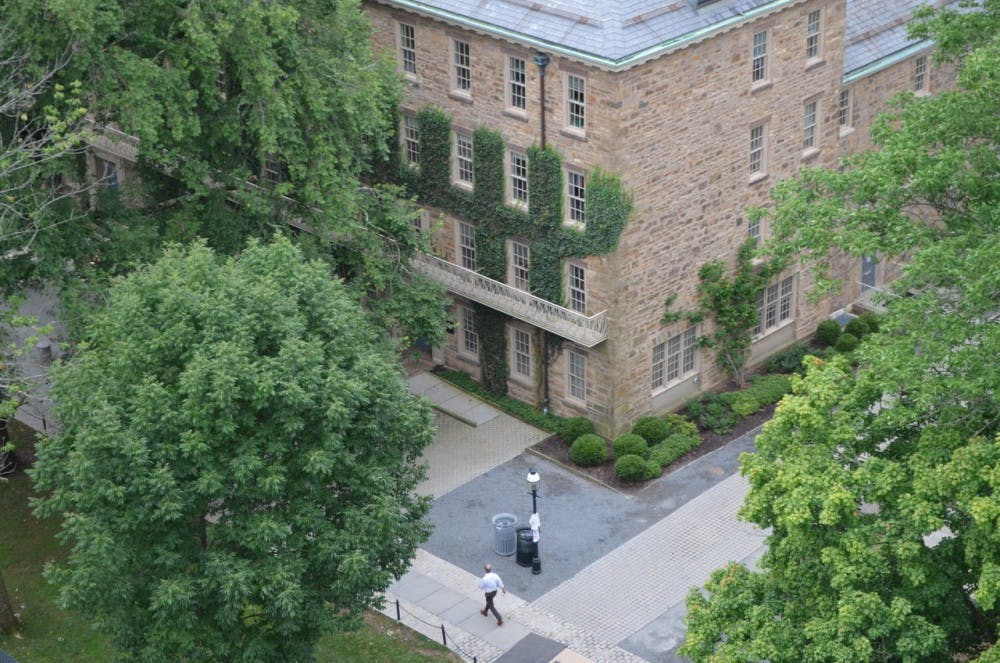As the world continues to battle the pandemic, applicants to the Class of 2025 will take part in an entirely virtual admissions cycle.
Rather than visiting campus for admissions events and meeting alumni for in-person interviews, prospective members of the Class of 2025 will utilize virtual tours, online information sessions, and remote interviews.
Earlier this year, the University announced several major changes, including the temporary suspension of Early Action and standardized test requirements, to its admissions practices.
According to the Undergraduate Admissions website, prospective students and their families will not be welcomed to campus “until further notice and for fall 2020 [at] the [very] least.” Instead, they will watch virtual campus tours, Zoom information sessions with admissions officers and current students, and prerecorded “on-the-go” info sessions.
Remote alumni interviews
Admissions interviews, which often involve in-person meetups between students and interviewers, will be conducted on a fully remote basis.
“We will continue to share the contact information of applicants who wish to be interviewed with Alumni Schools Committee (ASC) interviewers in their geographic area,” University Spokesperson Ben Chang wrote in a statement to The Daily Princetonian. “For students living in areas that do not have alumni, we will connect them with an alumnus/alumna from another geographic area and conduct remote interviews, a process we have had in place for some years now.”
Students who participate in remote interviews often live in rural areas or in locations where relatively few University alumni live.

“I’m from Mexico City, in an area with inefficient public transport, so even the few alums living in Mexico City were hard for me to reach,” Neyci Gutiérrez Valencia ’23 wrote to the ‘Prince.’
Gutiérrez Valencia explained that an alumnus from Germany conducted her interview remotely. Though the conversation required careful coordination, in light of their difference in time zones, things went well once interview day arrived.
“Technologically, I think it was the smoothest one, actually,” Gutiérrez Valencia said, comparing her remote Princeton interview to those of other colleges. “The connection was really stable on both ends, and it was very natural. It was the one I enjoyed the most.”
Isaac Monks, a high school senior and prospective applicant from Oklahoma, explained that he would participate in a remote interview even in normal times.

“It kinda levels the playing field, in a sense, because I don’t have to go against kids who are able to show their personality in person without having to drive, like, 50 miles,” he said in an interview with the ‘Prince.’
But both students shared concerns about the drawbacks of virtual interaction in evaluative conversations, such as college interviews.
“Phone call interviews were particularly hard because I had no visual cues from the interviewer, and some were not really expressive verbally,” Gutiérrez Valencia wrote. “It was hard to gauge their interest/attentiveness, and it was generally very anxiety-inducing.”
Monks also spoke to the phenomenon of “Zoom anxiety.”
“As a whole, it’s a little worrying for everyone having to do the Zoom interviews — firstly, like, personality-wise,” he said. “I’m always worried about stuff like, ‘Is my mic going to cut out? Am I speaking too loud? Am I speaking too quietly?’”
Monks pointed out that socioeconomic inequalities may also be exacerbated in an all-remote interview format.
“This whole internetscape of communication is really limiting to low-income students,” he said. “Obviously, the upper middle-class or upper-class students are going to have good technology, good video cams, good Wi-Fi, things that are just going to make the interview more normalized, as if it was held in person. But a low-income student like myself … I can’t pay for [high speed internet].”
“I definitely think that alumni might be able to see that economic status somewhat in these video calls,” he added.
University Spokesperson Ben Chang told the ‘Prince’ that interview reports will be read as they have been in the past: “within the context of the overall application.”
“I think that in the end, it shouldn’t make too much of a difference whether the interviews are being conducted remotely or not,” wrote Abdullah Ramadan ’23, who also participated in a remote interview as a prospective student, “because they’re just not very heavily weighted in the admissions process.”
Changes to the writing supplement
Alongside these all-remote admissions practices, the University has altered its supplement to the Common Application.
Released in mid-August, the University’s writing supplement notably differs from those of previous years. In the past, the University has only required prospective engineering (B.S.E.) students to write an academic-specific essay, but the new supplement asks both B.S.E. and non-engineering (A.B.) students to write 250 words about their academic interests.
A past prompt about how the student spent recent summers has been removed, but the prompt asking students to reflect on an “activity, organization, work experience, or hobby” remains.
In prior years, students have been asked to write a roughly 500-word essay on one of four topics. This question has been removed, and replaced by two shorter prompts asking students to write in 250 words each about their experiences with “dialogue on difficult issues” and “service and civic engagement.”
The traditional 10-question grab bag about students’ favorite things has been replaced with just three: “What is a new skill you would like to learn in college?,” “What brings you joy?,” and “What song represents the soundtrack of your life at this moment?”
“In each admissions cycle, we assess several aspects of the application process — this was especially true for 2020–21, with Karen Richardson [’93] having completed her first year as Dean of Admission at Princeton,” Chang wrote in a statement to the ‘Prince.’ “An internal committee reviewed the essay prompts and recommended changes that reflect the University’s core principles and are relevant to the times.”
Applications in the 2020–21 admissions cycle will be due for all students on Jan. 1, 2021.








